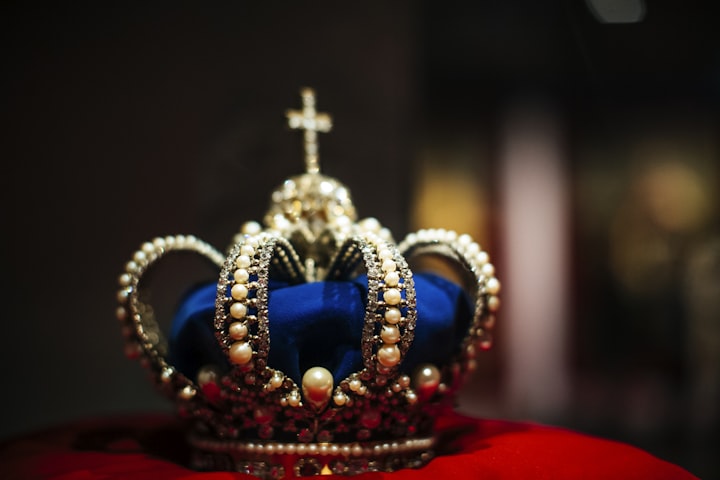The unromantic side of the British monarchy
What is expected by the diversified subjects

"Some people are born great, some acquire greatness, and some have greatness thrust upon them". (William Shakespeare)
The late queen Elizabeth, is a classic example of greatness being thrust upon someone. It is said that there are two sides to any story. I disagree. There are many sides to stories. The reign of the British 'Royal' family has a myriad of different sides, so countless that it is virtually impossible to identify them all.
I have a great admiration for the life and reign of Elizabeth II. Her dignity, longevity and grace in the face of an unimaginable duty of her rule of a monarchy. What, we could ask, is there not to admire of this woman who served as a truck driver and mechanic during World War II, making her the first female member of the royal family to serve in the military.
Starting at age seven, she has sat for two hundred (200) official portraits in her lifetime, while ruling over a commonwealth comprising fifty four (54) nations. I imagine she needed that many portraits in the same way young people need that many selfies of themselves nowadays.
While we yet romanticize and admire, we must inject into this story the past history of the tragic, complicated, bloody and distasteful other side of the royal coin.
Which countries were ruled by the Queen of England?
These countries are known as the “Commonwealth of Nations”. They are Antigua and Barbuda, Australia, the Bahamas, Barbados, Belize, Canada, Grenada, Jamaica, New Zealand, Papua New Guinea, St Kitts and Nevis, St Lucia, St Vincent and the Grenadines, the Solomon Islands, and Tuvalu.
There are other territories under the British monarchy, but they're not countries. The Queen is the Head of State of the: United Kingdom (4), The British Overseas Territories (14 - 17), The Crown dependencies (3), and The Commonwealth realms (16). So up to 40 countries:
What countries are part of the British Commonwealth?
All territories in Canada are part of the Commonwealth, and the same is true of Australia. The only country in South America that is part of the British Commonwealth is Guyana in the continent's northern region. The United Kingdom is, of course, part of the Commonwealth, as are a few Asian countries and the majority of southern Africa.
While I too have mixed feelings about the so-called greatness of a monarchy that has been built upon the backs of the suffering of many, we cannot totally blame them for the parts played by exterior forces which aided their success.
One such force was the Dahomey tribe, among others in Africa, which aided and abetted the capture and sale of their own race into slavery. We may not fully understand the reasons why a people would willingly enslave their own, whether from a need to capture those who would harm them, or did they purposely seek out and wage war among their neighboring tribes with the sole aim of procuring them for sale into the slave trade.
We must assign blame and complicity in it's totality if we are to present the full picture of tyranny, brutality, torture and wanton callousness.
"Washington Post columnist Karen Attiah felt as though the death of Queen Elizabeth II was the perfect opportunity to examine the alleged "ugly truths" about the monarch and British Empire.
The piece began by remarking on the fact that the Queen’s death has caused "a global battle royale over a central question: How do we speak honestly about the loyal servants to Britain’s powerful and historically brutal empire?
She argued the supposed "truth" was completely opposite to how the mourning British masses are viewing Elizabeth II’s death. "In the wake of the queen’s death, propaganda, fantasy and ignorance are being pitted against Britain’s historical record and the lived experiences of Africans, Asians, Middle Easterners, the Irish and others."
She described that "propaganda" as the notion that "the queen is a symbol of decorum and stability in the post-World War II world." However, "to people of places that Britain invaded, carved up and colonized over centuries, the 96-year-old grandmother — and the rest of the royal family — evoke complex feelings, to say the least," the columnist asserted.
The ‘They ruled us. So, we are British!’ mentality. I am of Caribbean descent, and I am also guilty of feeling that somehow I am British by extension of my country having been under British rule before our independence in 1962
For many, the British — by extension the queen — remain guilty for the British nation’s historical crimes.
"Yet, Britain under Elizabeth did not just let its prized colonies go. From 1952 to 1963, British forces crushed the Mau Mau rebellion in Kenya, forcing between 160,000 and 320,000 Kenyans into concentration camps," Attiah noted.
She claimed Elizabeth II bore guilt merely because she embraced being a symbol of the British crown. "But symbols matter. Elizabeth willingly took on the role of representing British power and wealth. She willingly adorned herself with jewels plundered from former colonies."
"Her image is on the currencies of many former colonies; by stewarding the British Commonwealth, she willingly took on the symbolic, patronizing role of ‘white mother’ to the darker peoples’ of the former empire".
1 million people of the Ibo ethnic tribe were killed or starved to death. Some were forced to flee the country.
Hagiography of Queen Elizabeth and the fading British Empire obscures the truth not only about Britain, but also about our current world order, which is built on past history.
With the death of the queen, who was greatly loved, and who kept tight reins and order among the many, the romance is now dead (sorry for the pun). It is time for the many 'realms' to break ties with the British Monarchy and remember the past for what it was.
History of the United Kingdom
The history of the UK began towards the early eighteen hundreds. There were many wars between France, Spain, the United States and many more.
The Seven Years' War, which began in 1756, was the first war waged on a global scale, fought in Europe, India, North America, the Caribbean, the Philippines and coastal Africa. Britain was the big winner as it enlarged its empire at the expense of France and others. France lost its role as a colonial power in North America. It ceded New France to Britain, putting a large, traditionalistic French-speaking Catholic element under British control. Spain ceded Florida to Britain, but it only had a few small outposts there. In India, the Carnatic War had left France still in control of its small enclaves but with military restrictions and an obligation to support British client states, effectively leaving the future of India to Britain. The British victory over France in the Seven Years' War therefore left Britain as the world's dominant colonial power. (Wiki)
Britain reached the zenith of it's economic and political power when Victoria ascended the throne in 1837 at the age of 18. She reigned until 1901. Britain was embroiled in 137 wars between 1700 and 1850. Victoria was also, (in the midst of war, children working in coal mines, and gleaning profits from the slave trade, among other vices), regarded as a great queen. Greatness achieved at the expense of bloodshed, murder and exploitation is not greatness to be proud of.
This then, the tip of the iceberg of the legacy of the monarchy of the British empire is a questionable victory for progress.
Progress, unfairly gained leaves a bitter taste in the palates of those whose ancestors paid a heavy price for the appetites of those who are lauded today as great, wise, kind and wonderful.
Yes! We must move on and look to the future, but should we be asked to forget the past. A people who forget the past is a people doomed to repeat the mistakes or become lost in the translation of life.

Uneasy lies the head that wears a crown! (William Shakespeare)
N.A.
About the Creator
Novel Allen
Every new day is a blank slate. Write something new.
Reader insights
Outstanding
Excellent work. Looking forward to reading more!
Top insights
Compelling and original writing
Creative use of language & vocab
Easy to read and follow
Well-structured & engaging content
Excellent storytelling
Original narrative & well developed characters
Expert insights and opinions
Arguments were carefully researched and presented
Eye opening
Niche topic & fresh perspectives
Heartfelt and relatable
The story invoked strong personal emotions
Masterful proofreading
Zero grammar & spelling mistakes
On-point and relevant
Writing reflected the title & theme






Comments
There are no comments for this story
Be the first to respond and start the conversation.